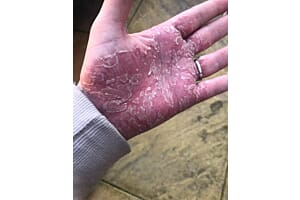A protein has been discovered that can reverse the symptoms of the skin condition vitiligo, acoording to new research.
The research, published in the medical journal Science Translational Medicine, found that by genetically modifying one of the amino acids in a protein known to play a major role in the development of vitiligo, could reverse the body’s response to vitiligo.
Mice with vitiligo that caused their fur to be peppers with white and black, were injected with the modified protein and after a period of time their fur turned black again. The same tests were carried out on samples of human skin in laboratory conditions and a similar effect happened.
Vitiligo is a condition that affaects about 1% of the population andcauses depigmentation of sections of skin. It occurs when melanocytes, the cells responsible for skin pigmentation, are unable to function.
The cause of vitiligo is unknown, but research suggests that it maybe either genetic or caused by oxidative stress, neural, or viral causes.
Treatments which have varying success include steroids creams, UVB therapy, PUVA phototherapy and more recently transplanting melanocytes, which is a skin grafting procedure developed in 1992 with pigmented skin taken from other areas of the patients body and grafted onto the affected areas.
Loyola University Chicago, who carried out the research on the new protein, has submitted a patent application for the protein and researchers are seeking regulatory approval and funding for a clinical trial in humans.







